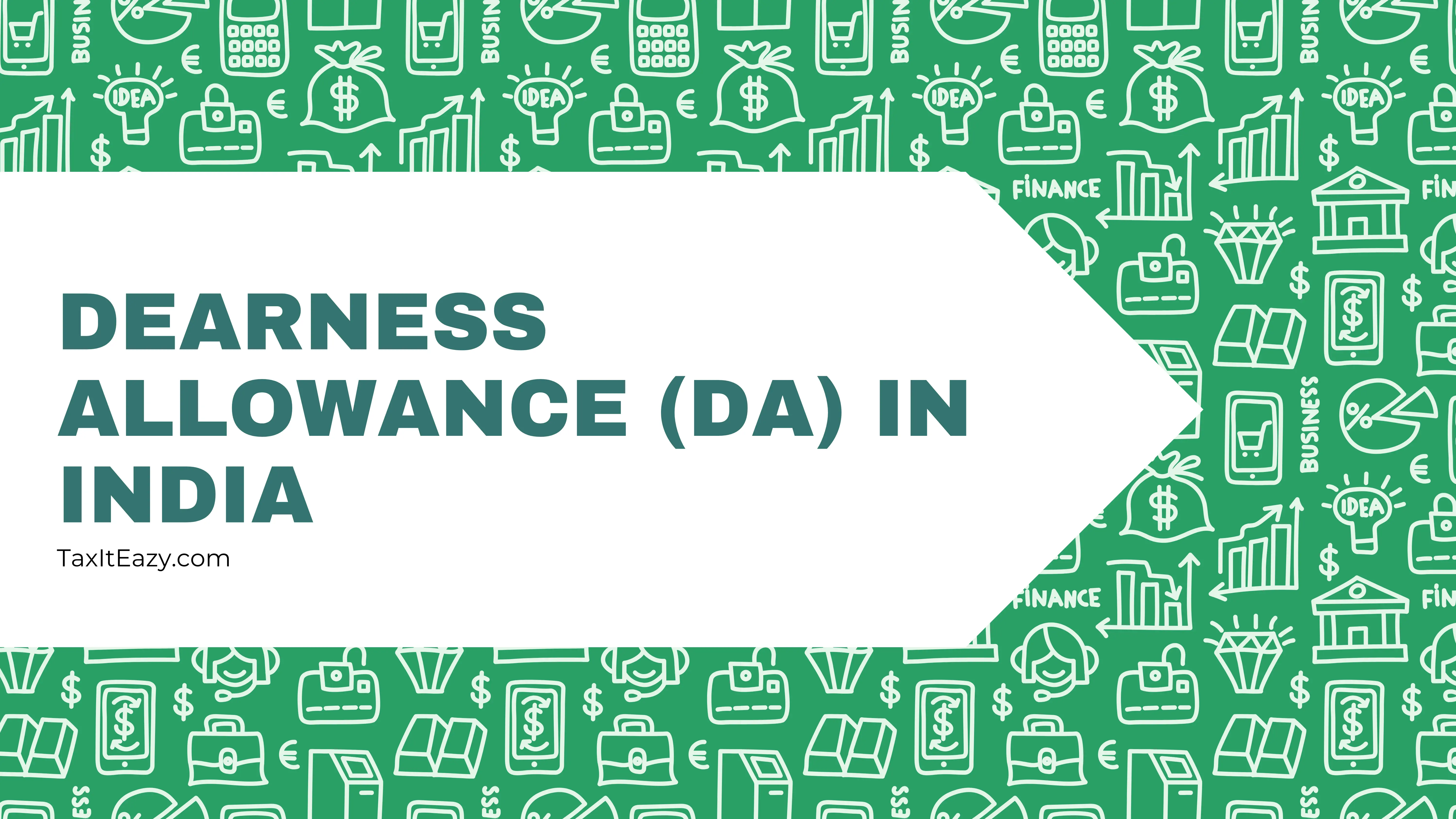
Dearness Allowance (DA) is a key component in the salary structure of public sector employees in India. With inflation on the rise and government pay revisions happening regularly, understanding DA is more important than ever.
Whether you are a salaried central government employee, pensioner, or simply preparing your tax return, knowing how DA works can help you better manage your finances.
What is Dearness Allowance (DA)?
Dearness Allowance is a cost-of-living adjustment provided by the government to its employees and pensioners to cushion the impact of inflation. It is calculated as a percentage of an employee's basic salary and is revised twice a year (January and July) based on changes in the Consumer Price Index for Industrial Workers (CPI-IW).
Types of Dearness Allowance
- Industrial Dearness Allowance (IDA): Paid to public sector employees and recalculated quarterly based on the CPI.
- Variable Dearness Allowance (VDA): Paid to central government employees. Revised bi-annually. Includes Base Index, CPI, and fixed amount.
Latest DA Rate & Hike News (As of July 2025)
- Current DA rate: 55% (up from 53%)
- Effective from: January 1, 2025
- Expected hike: 58%-59% in July 2025
Example: If basic salary = ₹45,700
At 53% DA: ₹24,221
At 55% DA: ₹25,135
Monthly increase = ₹914
The CPI-IW inflation for June 2025 stood at 5.7%, which is the main driver for the upcoming DA revision.
How is DA Calculated?
For Central Government Employees:
DA% = [(Average CPI-IW (Base Year 2001=100) for last 12 months – 115.76) / 115.76] x 100
For PSU Employees:
DA% = [(Average CPI-IW for last 3 months – 126.33) / 126.33] x 100
Note: The new base year of 2016 uses a linking factor of 2.88.
Dearness Allowance for Pensioners (Dearness Relief)
Pensioners receive DA as Dearness Relief (DR). The DR rate is the same as the current DA rate.
- Full eligibility if not re-employed
- If re-employed, DR may be limited based on terms
As of July 2025, over 69 lakh central government pensioners receive DR.
Tax Treatment of DA in India
- DA is fully taxable under Income Tax Act
- Must be disclosed under the "Salary" head in ITR
- If rent-free accommodation is provided, DA is included in salary for retirement benefits
DA vs HRA: Key Differences
| Feature | DA | HRA |
|---|---|---|
| Purpose | Offset inflation | Support housing |
| Applicability | Govt/public sector | All sectors |
| Tax Exemption | Fully taxable | Partially exempt |
| Calculation | % of basic pay | Salary, city type & rent |
Pay Commissions & DA
The 7th Pay Commission defines the current DA structure. Pay Commissions revise DA formulas based on inflation. The upcoming 8th Pay Commission (expected in 2026) may introduce major changes or merge DA with basic pay.
FAQs About DA
Conclusion
Dearness Allowance safeguards the purchasing power of government employees and pensioners. With a direct link to inflation, DA helps keep salaries relevant. Though it's taxable, understanding its structure is essential for accurate tax filing.




